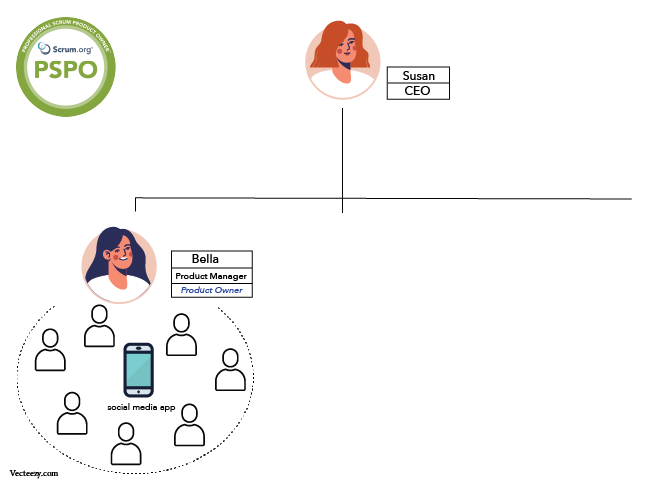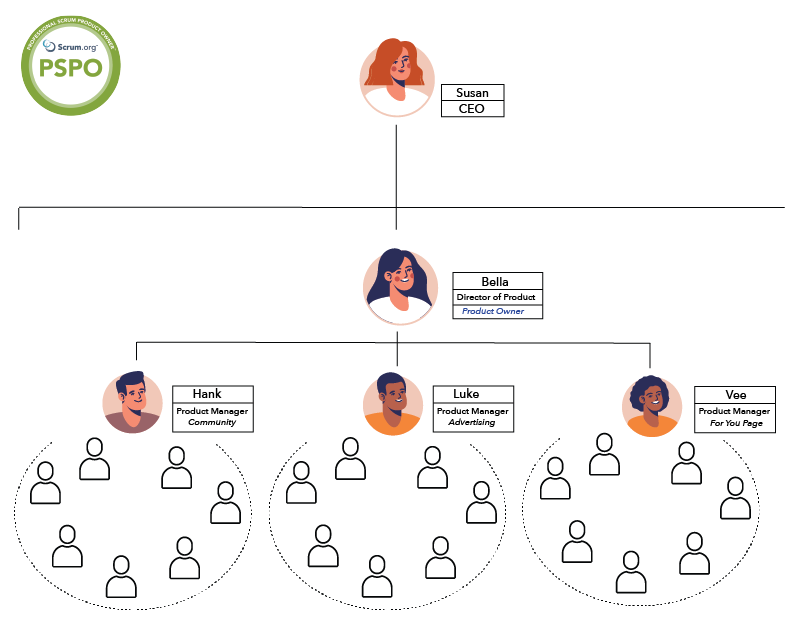What's the Difference Between a Product Manager and a Product Owner?
This is one of the most frequently asked questions in the Professional Scrum Product Owner classes I facilitate.
TL;DR
A Product Manager is a job title, while a Product Owner is an accountability in Scrum.
Tracing the Roots of the Difference
To understand the difference more deeply, let’s explore the origin of both terms.

The term Product Manager was first introduced by Bill Hewlett and Dave Packard at Hewlett-Packard. At the time, a Product Manager was responsible for managing one product from the company’s product portfolio. They interacted directly with customers and served as a bridge between customers and engineering teams.
This job title was inspired by the Brand Manager role at Procter & Gamble. In a legendary memo by Neil McElroy, brand managers were given full responsibility over a brand so that it wouldn’t fall under any specific functional department. The goal was to ensure a single point of accountability for each brand at P&G.
So, Where Does the Term “Product Owner” Come From?
Scrum emerged in the early 1990s, developed by Ken Schwaber and Jeff Sutherland. As we know, Scrum defines three accountabilities: Product Owner, Scrum Master, and Developers.
PSPO participants often ask me this follow up question:
"Why didn’t Ken & Jeff just use the term Product Manager, which was already well-known and had existed for at least fifty years before Scrum?"
I once asked Ken Schwaber this same question directly via email. He explained that he & Jeff deliberately avoided using the words “project” and “manager”, because Scrum was created as a counterpoint to the Waterfall method, which was heavily tied to the role of Project Manager.
According to Ken and Jeff, most Project Managers they encountered at the time were merely proxies for stakeholders. They didn’t have real authority over the product. Ken and Jeff wanted to empower full ownership to the individual who would be truly accountable for the value of the product hence the term Product Owner.
They chose the word “owner” to instill a mindset of ownership, not just management. They also wanted company leaders to respect whoever is the Product Owner, because back then, they were pushing back against authoritarian leadership styles.
That’s why, in the Scrum Guide, Product Owner is not a job title, but an accountability. They are accountable for maximizing the business value of the product.
In other words:
- A Product Manager manages.
- A Product Owner owns.
- Taking ownership is more than just managing.
It’s like in a company: the owner makes the final decisions, while the managers simply manage. Understanding this semantic difference is important, language shapes the way we think and act.
Can a Product Manager Be a Product Owner?
Another follow up question that I often get from participants is ...
If Product Owner is an accountability in Scrum, can a Product Manager be the Product Owner?
Yes, provided they have full authority over the product.

Let me illustrate this with a story:
Meet Bella, she works at a startup company that builds a social media product. Her official job title is Product Manager, and her team uses Scrum.
When she joined, the company was small—only 7 developers.
The CEO, Susan, gave Bella full authority over product decisions.
- 80% of the Product Backlog items came from Bella's own initiatives.
- Susan's ideas were discussed collaboratively.
- Susan respected and empowered Bella, she wasn’t authoritarian.
- Bella was fully accountable for the product’s revenue.
In this situation, Bella is both the Product Manager and the Product Owner in Scrum. Regardless of her official title being Product Manager, she holds the final decision-making authority over the product.
But if Susan had overridden Bella's decisions most of the time or 80% of the Product Backlog is Susan's initiatives, then Susan is the de-facto Product Owner.
As the Product Scales
The story continues. Three years later, the company grows. Bella is promoted to Director of Product and Susan still holds her accountable for the product's business value.

The company hires more developers and three additional Product Managers to handle different areas:
- Hank – manages the Community section in the product.
- Luke – handles Advertising.
- Vee – focuses on the For You Page section.
Even with multiple Product Managers, Bella remains the Product Owner because she still holds the accountability for the product’s business value.
Remember: Product Owner is an accountability, not a job title. So the accountability of Product Owner in the scaled Scrum context moves up as Bella moves up, not stays below. The accountability of Product Owner follows whoever has the final say over the product.
There’s a common myth in the market that Product Owner is a low-level team role or junior position. But the Product Owner is the one with real decision-making authority, regardless of their job title. Follow the actual authority on the product, not the job title.
But... Won’t Bella Be Overwhelmed?
Another common follow-up question I get during the class is:
“Wouldn’t Bella be overwhelmed detailing all of the Product Backlog items for three teams in a scaled Scrum setup?”
This is where frameworks like Nexus (Scrum at scale) become relevant.

📘 To learn more, read the Nexus Guide or watch this video.
In Nexus (and in the Scrum Guide), the Product Owner may delegate tasks such as backlog detailing to others, including Product Managers responsible for individual product areas. This is semantically correct, as the Product Owner still holds ownership or held accountable while the Product Managers responsible with Product Backlog management.
Always remember:
While responsibilities can be delegated, accountability cannot.
As written on Scrum Guide ...
The Product Owner may do the above work or may delegate the responsibility to others. Regardless, the Product Owner remains accountable.
If the product fails to achieve its business value, Bella is still the one held accountable, because Product Owner is an accountability. Like Ken Schwaber once told me ...
The Product Owner is the one who will be fired if the product does not meet the expected business value.
They take full ownership of the value of the product hence the Product Owner accountability.
Closing
I hope this simple explanation helps clarify the difference between a Product Manager and a Product Owner. Go check out Scrum.org Product Owner related courses to learn more about the Product Owner accountability. Don't forget to like and share.
If your organisation would like me to facilitate Scrum.org courses or have a consultation on product driven organisation structure, please use the contact form. Cheers.
